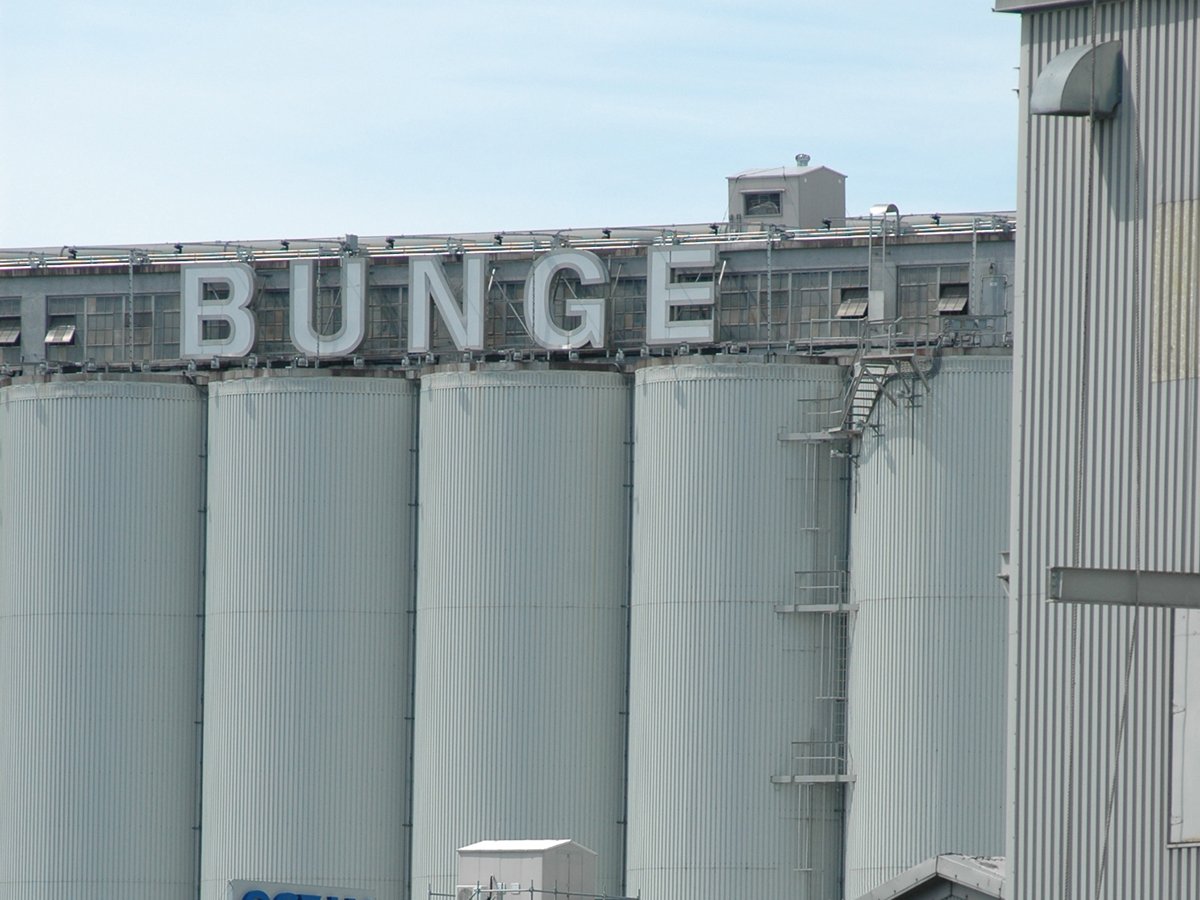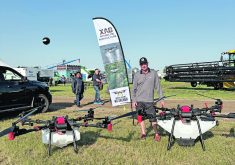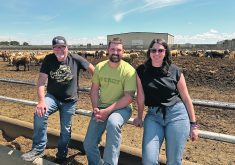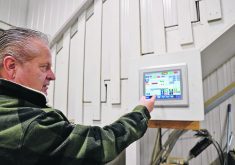The Rainforth farm near Lacombe Alta., was established in 1900 by Albert Rainforth. Today R. Rainforth & Sons Ltd. encompasses more than 1,200 acres.
Albert’s grandson, Dave, and his son, John, grow grain, but over the years the farm has also included beef cattle and a dairy.
The farm became a corporation in 1970.
“We were advised to do that by our accountant for tax purposes,” says Dave.
There are four other stories in this Strategies series:
- Navigating farm succession: a tool kit
- Following key steps makes planning easier
- Price of a lifetime
- The soft side of selling: letting go of the farm
Read Also

Bunge’s crop mix is changing
Bunge has predominantly been a soybean processing firm, but that’s about to change after the merger with Viterra with softseed processing and grain merchandising gaining ground.
Shareholders were Dave, his father, Richard Rainforth, and his brother, Bill Rainforth.
When they began, the senior Rainforth owned most of the assets. Dave and Bill bought shares from their father. Eventually each shareholder owned 33 percent of the shares. When Richard died in 1989, his wife inherited his shares and the farm carried on until her passing in 1997. By that time, Dave’s son, John, and Bill’s two sons were grown and John and his cousin, Mike Rainforth, were working for the corporate farm.
Investopedia defines a corporation as a legal entity separate and distinct from its owners. Corporations enjoy most rights and responsibilities that an individual possesses. They have the right to enter into contracts, loan and borrow money, sue and be sued, hire employees, own assets and pay taxes.
In 2012, the two families agreed to split the assets and Dave maintained the old corporation, R. Rainforth & Sons, with the shares divided among, Dave, his wife, Colleen, and John. Over and above the common shares he owns in the corporation, Dave has 100 preferred shares. This represents the value he brought into the company.
Dave and John manage the farm together.
“We talk and make decisions together,” Dave says. “I’m getting old now so he does the grunt work, but I still help.”
Dave also keeps the books as he has done since he farmed with his father and his brother. Dave, his wife, Colleen, and John have the option of taking a salary or dividends on shares, depending on which makes the most sense tax wise.
“I have no intention of retiring till I have to,” says Dave. As John takes on more and more tasks he gets paid more.
Corporations can pay employee benefits and John and Dave have the option of not contributing to the Canada Pension Plan if they opt to take their earnings in dividends.
Canadian farms that qualify as a family farm corporation or a small business corporation are eligible for reduced tax rates at both federal and provincial levels.
Income splitting is another perk for corporate farms. Colleen can also receive her salary in dividends if she wishes.
As long as the family continues to farm, there are advantages, says Dave. There would be no tax involved with the death of any of the shareholders. Shares are turned over to the next generation tax free. Capital gains are not collected unless the farm is sold.
At R. Rainforth & Sons Ltd., the houses are owned by the corporation. That was a mistake, says Dave. “We shouldn’t have done that.”
What this means is that they can’t take advantage of the perks available for private residences. Moreover, if Dave and Colleen wanted to buy their house and let their son have the rest of the farm they wouldn’t be able to do that without some severe tax implications.
Money spent on maintaining houses is tax deductible but all shareholders must agree on the changes. This hasn’t been a problem for the Rainforths, but Dave says he has heard of other families who have had difficulties in that area.
Despite a few regrets, the corporate owned business model has worked for the Rainforths. Dave says the long family tradition of farming will be available to his son, John, his wife and three children should they choose it .
Should you incorporate?
- If your farm producing more income than you need for personal expenses. If so, incorporating may bring income splitting benefits.
- Do you have large sources of noon-farm income which can provide sufficient cash flow? If incorporated, the farm income will taxed at lower corporate rates. It may be possible to defer taxes by keeping profits in the corporation and paying yourself a salary or dividends later in later years.
- Do you need a large portion of the both the farm and non-farm income for living expenses and financial goals? If so, incorporating is likely not a good solution.
- Does your farm have a history of profits? Farm losses incurred personally can be used to offset other sources of income to reduce your overall tax burden. However, losses incurred as a corporation cannot be used to offset personal income.














